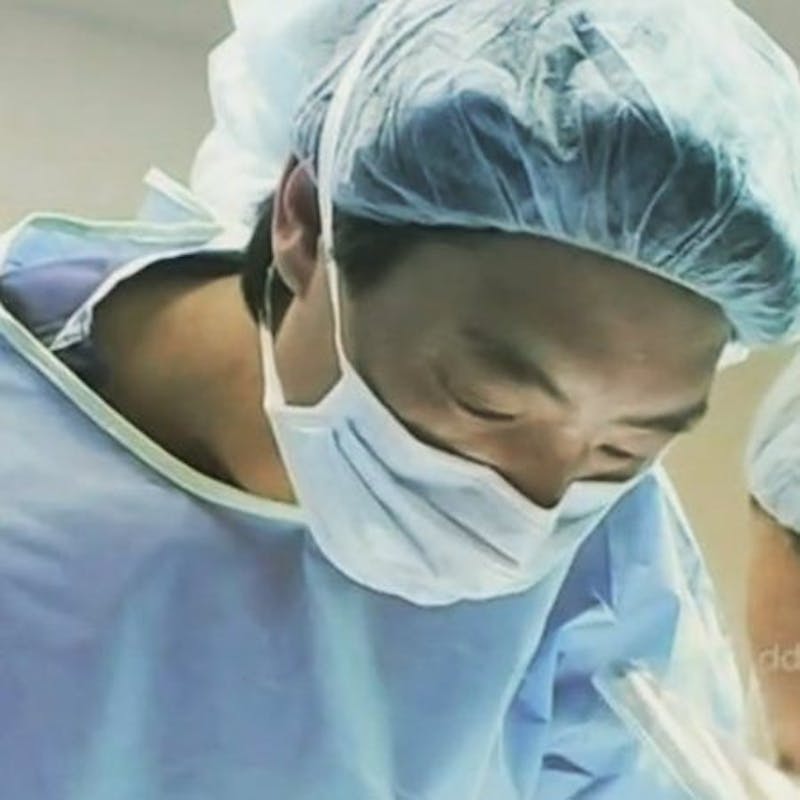
If you’re considering having plastic surgery, it’s critical to find the right plastic surgeon. That’s your greatest task, and it can be the greatest obstacle as well. However, if you know what to look for, this process doesn’t need to be a chore. The wonderful news is that the best plastic surgeons welcome your critical attention and detailed questions. Like you, they want less qualified people to be rooted out of the process!
Selecting the right plastic surgeon demands a blend of thorough research, assertive questions, and sound judgment. In this guide, we’ve taken the guesswork out of the process and distilled decades of experience that can help you conduct your research. Here is our best advice on how to choose your plastic surgeon.
Identify what you’re looking for
What we’re talking about here are the things about your appearance that you’re ready to change. For most of us, this is simple, because it’s on our minds a lot! However, it’s also a critical first step in finding your perfect surgical match. The best surgeon often depends on exactly which procedures you’re contemplating. Some plastic surgeons limit their procedures to face only.
Ensure plastic surgery is your surgeon’s focus
Ideally, plastic surgery should be all your surgeon does. If the human aesthetic is not part of your surgeon’s day to day practice, they might not be the best choice, even if they have plenty of skill and training.
Your surgeon should be board certified in plastic surgery
Be careful with this critical tip! Not all “board certified” surgeons are created equal when it comes to plastic surgery. Many consumers believe they can depend on state medical boards to ensure that surgeons who advertise cosmetic procedures are qualified to perform them, but in reality, the government does not require any special training for a surgeon to offer certain procedures. This is a tremendous problem in the realm of plastic surgery, as many surgeons with general training and even internists offer cosmetic procedures in the hopes of making more money from their practices.
Furthermore, board certification from the American Board of Plastic Surgery is a unique qualification that only highly skilled and trained professionals can attain. If a doctor is certified by the ABPS they are certified in plastic surgery specifically and have met at least the following minimum requirements.
- 4 years of college
- 4 years of medical school
- 3 to 5 years of general surgery internship and residency
- 2 to 3 years of plastic surgery fellowship time
- oral and written exams with a 70% pass rate
Any board certified plastic surgeon is qualified to perform any sort of cosmetic and reconstructive surgery on any region of the body.
So, is there really a difference between a “cosmetic surgeon” and “plastic surgeon”? Absolutely! And the practical difference exists in the capabilities, qualifications, and training of the surgeons. Here are the basics to help you understand.
Plastic surgery alters the appearance, for cosmetic, reconstructive, or dual purposes. Cosmetic surgery is a subtype of plastic surgery; its aims serve cosmetic purposes. All plastic surgeons are cosmetic surgeons, but the reverse is not the case, for several important reasons.
As noted above, plastic surgeons undergo stringent training and certification. A board certified plastic surgeon has completed extensive years of training and proven their skill. However, there is no official residency or certification for cosmetic surgeons. Any surgeon who conducts cosmetic surgeries, whatever their specialty, can call themselves a “cosmetic surgeon.” Cosmetic surgeons are often trained in general surgery, obstetrics/gynecology, otolaryngology (head and neck surgery), emergency medicine, family medicine, or even dermatology.
To make matters worse, cosmetic surgeons are sometimes “certified” as a “cosmetic surgeon” by the American Academy of Cosmetic Surgery (AACS). However, the AACS is nothing like the ABPS. It is not recognized by any official medical organization, including the American Board of Medical Specialties or the American Board of Plastic Surgery.
Look for specialization within plastic surgery
Find out which specific plastic surgery procedures your surgeon specializes in. Someone who has particular focuses within the industry is more likely to have more experience performing the procedure you’re looking for and is also more likely to have cutting edge knowledge of the latest techniques.
Setting and hospital privileges
Where does this plastic surgeon conduct their procedures? In their own facility, or a hospital, or both?
If they conduct procedures in a facility that’s not a hospital, that facility should be licensed by the state and certified by Medicare. The majority of surgical facilities that are based out of the offices of practitioners are not certified. Even if your procedure is being done in a properly licensed and certified facility, the surgeon should have hospital privileges; find out where those privileges are. There should always be a backup plan in the unlikely event that something goes wrong at the facility. Furthermore, hospitals do background checks, and before granting privileges they review training and competency. If the surgeon doesn’t have hospital privileges, beware.
Ask important questions at your consultation
This is not the time to be shy or embarrassed! Your health and the quality of your results are at stake. Here are some possible questions to come armed with at your appointment.
About choosing the right procedure:
If someone you loved had the same concerns, what procedure would you perform?
What are all of my options?
Is there anything you think I haven’t considered that I ought to, given my concerns?
About their qualifications:
How many years have you been in practice?
How many procedures have you performed?
How many times have you performed this procedure?
How long have you performed this procedure?
What other procedures do you perform?
Are you insured for malpractice?
Has a cosmetic surgery that you performed ever resulted in a lawsuit?
Have you had any serious complications and unplanned hospitalizations after cosmetic surgery?
Have you ever been disciplined by a state medical board?
About the specific procedure:
What is involved in my procedure?
How is my procedure performed?
Can I see multiple before and after photos of patients on whom you have performed this procedure?
Can you provide me with three to five reference patients on whom you’ve performed this procedure?
What is the cost of this procedure?
What is the exact breakdown of fees for this procedure?
Can I get advance copies of all forms I have to complete and sign prior to procedure?
Will I be under sedation or anesthesia?
If yes, what level of sedation or anesthesia? Why? Do I have choices?
How long will the procedure last?
Where will the surgery take place?
What are the emergency plans?
To which hospital would I be taken?
Will you perform the entire procedure, from the first incision to the last stitch?
What realistic result can I expect?
What are the risks associated with this procedure?
About other team members who will help your surgeon:
Who will assist you during my procedure?
What are their qualifications and training?
Is everyone who will be involved with my procedure licensed in good standing?
Who will administer and monitor the sedation?
After the procedure:
How long will the sedation effects last?
How long will it take to recover in the facility before discharge?
Will post-operative medicine be necessary?
Will there be noticeable scarring?
What are the warning signs or concerns to watch for?
Do you do revisions?
If so, how much do they cost?
What are your complication and re-operation rates for this procedure?
Listen to “word of mouth”
In many cases listening to what people say about each other isn’t valuable, but that’s not true in this situation! What patients have to say about a plastic surgeon can tell you so much about that surgeon, from their talent and results in their bedside manner. Talk to people you trust, and ask who they recommend. Your primary care doctor might also have recommendations. Just remember that any recommendations should also have board certification that you verify through the American Board of Plastic Surgery (www.abplsurg.org).
Also, remember that in the age of the internet you’ve got access to patient reviews. Third-party review sources like Healthgrades, Real Self, and Yelp are excellent resources as you search for a great plastic surgeon. It isn’t easy to earn the word of mouth recommendations of dozens of strangers, but the best surgeons can do just that.
Check the surgeon’s record
Your state’s medical board will know more about your surgeon’s record, including any disciplinary actions. Ask for a report about any incidents. Pay careful attention to any records of disciplinary action or settlements.
Ask about your surgeon’s experience with the particular procedure you are considering. Especially in the case of newer technologies and techniques, ask whether there have been results that show how safe and effective the procedure is have been published in a peer-reviewed journal. If your surgeon is a pioneer in a certain technique, they will have a lot of information for you and plenty of experience with the procedure.
Look at your surgeon’s before and after photos
It bears repeating: one picture is worth ten thousand words. Experienced plastic surgeons have extensive portfolios of photos that show what they can do, and give you a realistic sense of what the procedures look like in real people. Look for photographic evidence of natural-looking outcomes – before and after photos of the surgery you’re interested in taken from various perspectives in similar lighting.
Comfort
Great chemistry and communication are essential to a plastic surgery patient/surgeon match. Interview your surgeon at the initial consultation, and make sure you can discuss your concerns, goals, and expectations candidly and comfortably. Your surgeon needs to be able to tell you good news and bad news, and everything else you need to know. They must let you in on every risk and benefit, and each post-surgical requirement.
Take your time
This is a big decision! You don’t need to decide overnight. Anyone who is pressuring you is probably not a great fit. Feeling completely confident will mean a faster, healthier recovery for you.
Tying everything together
If you’re researching the plastic surgery process for someone you love or for yourself, don’t hesitate to reach out with questions. Choosing the right surgeon is a complex process, and only you will know when you’ve found the right match. If you’d like more information about Dr. Lee, let us know. Like all confident plastic surgeons with excellent reputations, we’re more than happy to discuss your options with you and let our results, qualifications, and bedside manner speak for itself. Start your journey by getting to know Dr. Gilbert Lee, the board-certified plastic surgeon at Changes Plastic Surgery & Spa in San Diego.

